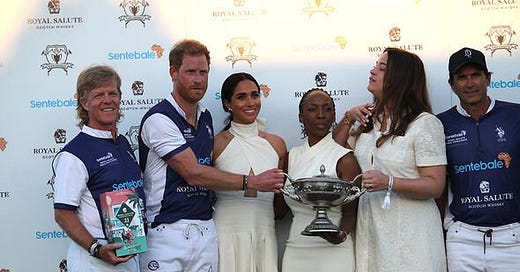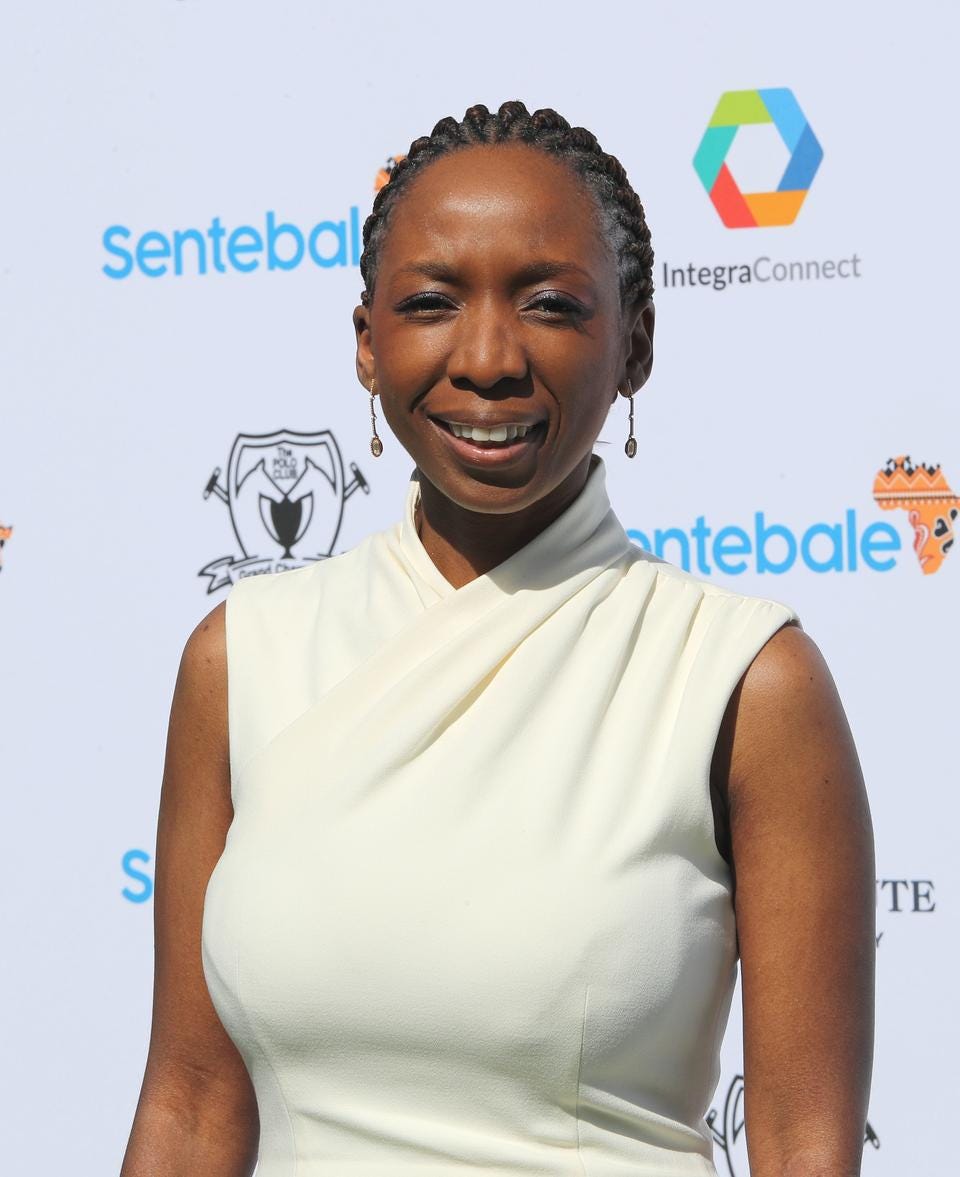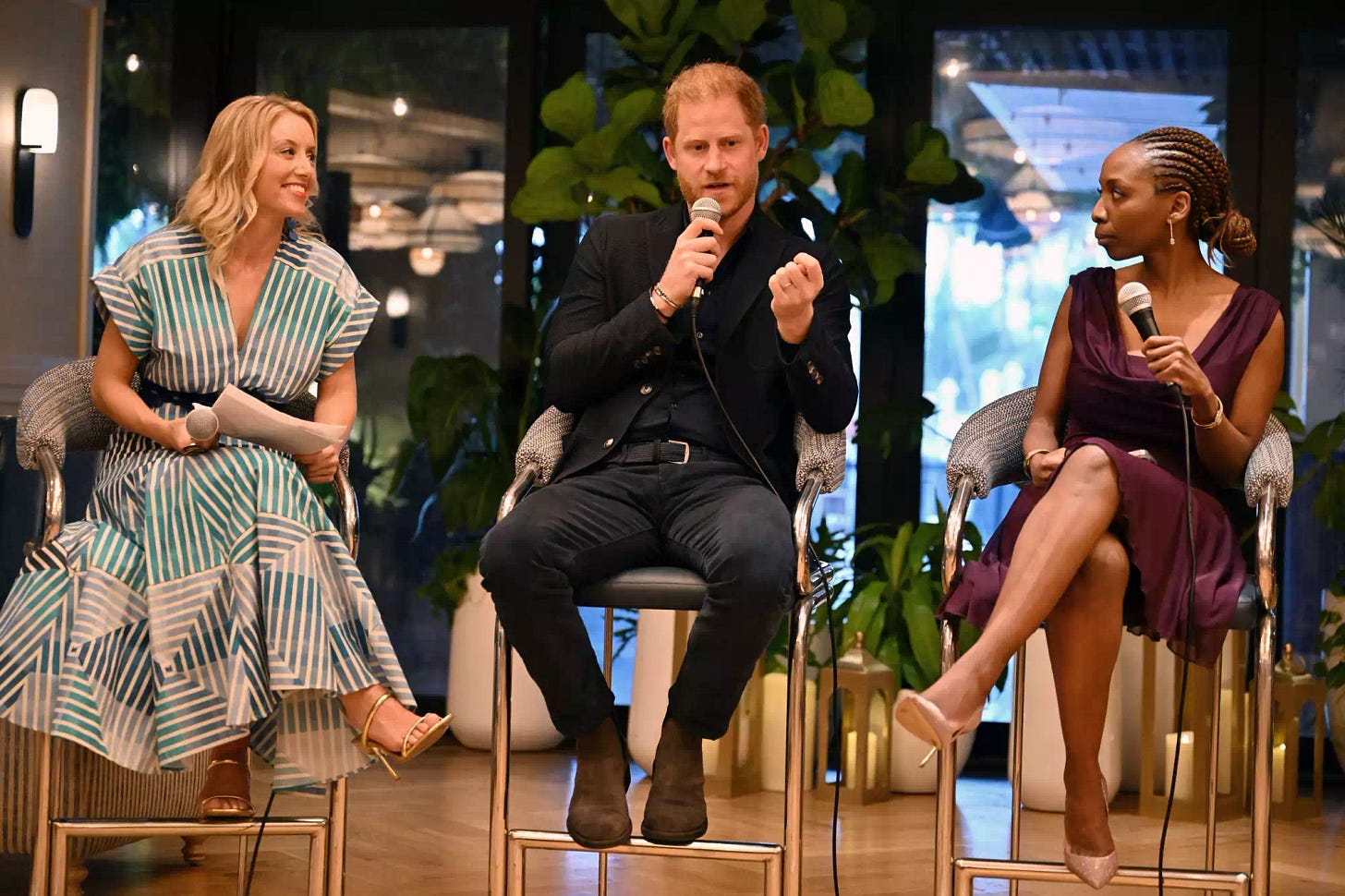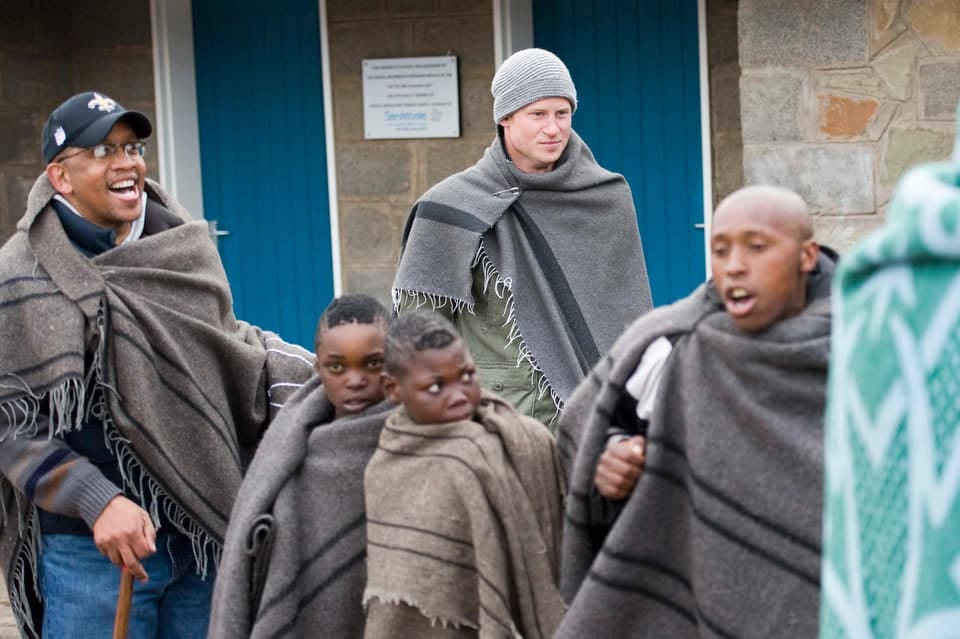Reader, it’s like I always say: two things can be true at once.
By now, I’m sure you’ve seen the headlines, the dueling PR statements, and the intentionally messy op-eds. The Duke of Sussex (along with Prince Seeiso of Lesotho and five of nine board members) abruptly resigned from the charity Sentebale last week, signaling deep internal strife at the organization.
After the board of trustees asked Dr. Sophie Chandauka to resign from her role as chair, she brought a lawsuit against the charity. (The position is voluntary and unpaid). The mounting dispute is now set to land in English courts, as well as before Britain’s Charity Commission—with both sides alleging misconduct. Chandauka claims that the high court had issued an emergency injunction to prevent her removal from her role as chair.
But as the dust settles, another familiar narrative has emerged: accusations of bullying and PR manipulation tied to the Sussexes.
At the heart of this controversy lies a tangled web of governance disputes, personal grievances, and the ever-present scrutiny that follows Harry and Meghan. While supporters and critics alike are quick to take sides, the reality is (as always) more nuanced. How did we get here? And what does this latest chapter in the Sussex saga reveal about the overall dynamics at play?
What Happened at Sentebale?
Sentebale was founded in 2006 to support young people in southern Africa affected by HIV and other social challenges. The name, meaning “forget-me-not” in Sesotho, was chosen as a memorial to the charity work of the two founders’ mothers (including Diana, Princess of Wales).
Despite its vital work in Lesotho and Botswana, the charity now finds itself embroiled in an internal power struggle. Sophie Chandauka, chair of the board of trustees, claims that Prince Harry attempted to oust her and, when unsuccessful, chose to resign in a way devised to harm the charity. During a Sky News interview this weekend, she accused Harry of wanting “to force a failure and then come to the rescue.”
A source close to the former trustees called Chandauka’s reaction “fully expected,” adding that the Princes resigned “for the good of the charity” and awaited an adjudication of the truth.
But Chandauka also argues that the Sussex brand itself had become a major liability for Sentebale, affecting fundraising and staffing efforts. She alleged that Harry’s team had previously pressured her to publicly defend the Duchess of Sussex against negative press, but said “No, we’re not setting a precedent by which we become an extension of the Sussex PR machine.”
The flashpoint in that conflict dates back to an April 2023 charity polo match in Miami. During an on-stage award presentation, Meghan allegedly asked Chandauka to switch places, requiring her to awkwardly duck under the trophy. After media scrutiny of the incident, Harry apparently (and allegedly) urged Chandauka to issue a statement in support of Meghan—a request she declined.
Chandauka also accused the charity's board of "misogyny and misogynoir” (misogyny against Black women) for how they treated her as a leader. But a source “close to the patrons and trustees” told PEOPLE Magazine that the dispute stems from governance concerns, not personal grievances. Above all, there was allegedly concern for how Chandauka handled the charity’s finances.
“The trustees tried to negotiate this privately and requested she consider her position due to their lack of trust and confidence in her as a leader,” the source said, “as demonstrated by the financial position she put the charity in.” They also argue that, rather than suffering because of his connection, Sentebale had been “heavily reliant” on Prince Harry’s involvement—through high-profile events like the Sentebale Polo Cup and $1.5 million in donations from his memoir Spare.
It’s not only unnamed sources defending the Prince’s choice to resign. Dr. Kelello Lerotholi, a former Sentebale trustee, disputed Chandauka’s claims of toxicity over the weekend, reaffirming that the real divisions stemmed from concerns over governance and financial stability. “The general tone and conduct of the board has been one of respect…so this all came as a shock to me.”
Lerotholi told Rhiannon Mills he “didn't recognize any of the allegations made…issues around stewardship, concerns about the future direction of the charity, and financial worries led to this huge divide and breakdown between the trustees, the patrons, and the chair.”
The Bigger Picture: The Weaponization of Bullying Allegations
Of course, this is not the first time accusations of bullying have been leveled at the Sussexes. In 2021, just before their landmark Oprah interview, allegations surfaced that Meghan had mistreated palace aides. These claims were met with vehement denials (and a non-existent Buckingham Palace “investigation) but have since lingered. The allegations reemerge periodically, at times that, to my trained eye, would be the most damaging to Harry and Meghan’s personal brands or commercial ventures.
A recent Vanity Fair cover story doubled down on the bullying narrative, citing anonymous sources who described Meghan’s work environment as “undermining” and “really awful.” Others who spoke to VF, however, called her warm and professional—highlighting how nebulous and subjective these accusations remain, years after first being aired. Most accounts suggest that, as a brand owner, Meghan’s leadership style can feel intense or demanding. Most reporting, however, stops short of detailing explicit instances of abuse. Instead, the storyline relies on vague descriptions of workplace tension and shifting personal dynamics.
Bullying is a serious accusation, but we’ve never seen the allegations against the Sussexs be seriously investigated. The trope’s use as a media weapon, then, is equally troubling. In a media landscape hungry for narratives of downfall, these claims (whether true or exaggerated) feed into a broader cycle where public figures become caricatures of their worst selves. The question is not just whether the allegations hold weight, but how and why they are being amplified now.
The Sussexes are no longer underdogs in their battle with the British establishment, and public perception on them has shifted. Stories about their alleged behavior now serve a different function—less about exposing injustice and more about reinforcing an unflattering image.
What This Means for Sentebale—and the Sussexes
The fallout from this scandal raises key questions about the future of both Sentebale and Harry’s philanthropic work:
Can Sentebale recover from this internal rupture? The charity has lost its founding leadership and now faces public scrutiny.
Will Harry step away from active charity work? His resignation from Sentebale could signal potential shift in priorities—perhaps all of the Sussexes’ charitable work will fall under the Archewell umbrella moving forward?
How will this impact the Sussex brand? The renewed bullying narrative could further complicate Harry and Meghan’s efforts to maintain a positive public image.
At its core, this should be a governance dispute at an international charity, and one that will have real consequences for real, underserved people.
But it’s also a case study of how narratives around the Sussexes are contrived, recycled, and weaponized. Accusations of bullying (whether valid or exaggerated) have become a recurring theme in their public story—a tool wielded by critics and amplified by media outlets.
Two things can be true at once: Sentebale is facing real leadership turmoil, and the media is capitalizing on it to reinforce existing perceptions of the Sussexes.
The question is, who benefits from these narratives, and what’s being left out of the conversation?
What do you think: governance dispute, reputation battle…or both? Let me know in the comments!











Well written! She said she didn't have an issue with Harry, and she deserves a chance to have transparency and accountability re: the issue of whether there was bullying, racism or other terrible behavior within the charity. Secondly, the timing isn't just a coincidence, as you wrote. Also, I am not familiar with using an honorary degree as a "Dr." (is this typical?), the cost of consultants (is this a normal amount for a charity?) nor the bioscience business she runs (I'm in pharma). The court proceedings might illuminate all of this.
Sentebale was registered in March 2006, exactly twenty years ago. Over the years there have just been four chairs and around 20 different Trustees, around eight serving for one to three years. Twelve Trustees have served from 20 years to four years, as follows: (1) Damien West, 20 years, four as Chair, (2) Mark Dyer, 20 years, (3) Johnny Hornby, 20 years, six as Chair, (4)Phillip Green, nine years as Chair, (5) The Rt Hon Baroness Chalker of Wallasey, 18 years, (6) Tim Boucher, 9 years, (7) Tsitsi Chatawama, 11 years (8) Dame Nicola Brewer, 7 years, (9) James Marshall, 5 years, (10) Keiello Lerotholi, 4 years, (11) ) Audrey Kgosidintsi, 4 years, and last but worse, (12) Sophie Chandauka, 11 years, 20 MONTHS as Chair. Of the first eleven of these Trustees, not counting Chandauka, EIGHT RESIGNED BETWEEN OCTOBER 2024 AND MARCH 26, 2025 WHEN CHANDAUKA WAS CHAIR (Damian West, Mark Dyer, Baroness Chalker, Tim Boucher, Tsitsi Chatawama, James Marshall), Keiello Lerotholi and Audrey Kgosidintsi). Also, Richard Miller, CEO for six years, resigned on 1/4/2025 and Andrew Tucker, a much-valued senior employee for nine years, resigned in December 2024. As you probably noticed, Prince Harry is blamed for staff leaving, but they had all been happy until Chandauka came on the scene. Another charge Chandauka has levelled at Prince Harry is that Sentebale was not governed well, and that Prince Harry is ACTUALLY a liability, suggesting funds had significantly decreased since he moved to the US. THAT IS NOT TRUE. I did a spreadsheet based on all the available financials (sentebale.org/annual-report-accounts) and discovered the following: the average funds raised, based on the six years prior to his stepping down (2014-2019) is £3,699, 000 per year, and the funds raised in 2023 (the last years financials are available) is £3,406,000, around 2%. Some categories of revenue have decreased and some have increased; Chandauka only highlights the decreases. In the past twenty years, Sentebale has raised £44,572,000 DIRECTLY BENEFITTING CHILDREN SUFFERING FROM AIDS OR LIVING WITH HIV. Prince Harry has raised £18,800,000 from his Polo Challenges over the years, alone. I so much want to see some of these points published somewhere.